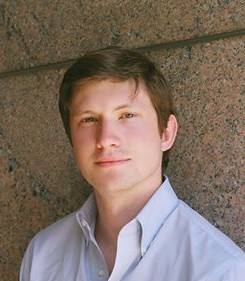John Fallon

Welcome! I’m a sixth-year PhD student in the economics department at Boston University. My research focuses on labor economics and education policy. I am particularly interested in occupational licensing and teacher labor markets. I enjoy working on projects that can directly inform policy. CV
Before BU, I earned my master’s degree at Northeastern and my bachelor’s degree at the University of Chicago. My committee members are Kevin Lang, Marcus Winters, James Feigenbaum, and Josh Goodman.
I am on the market.
Research
Competitive Occupational Licensure: Doctors Versus Chiropractors PDF
This paper provides the first analysis of competitive occupational licensure, where substitute professions maintain separate licensing boards that set entry requirements strategically. I develop and structurally estimate a model where professional organizations choose licensing stringency to maximize industry profits while accounting for competitive responses, as workers with heterogeneous abilities select occupations based on expected returns and consumers observe only average quality within each profession. Testing this theory using historical competition between medical doctors (MDs) and chiropractors (DCs) from 1907-1960, I exploit digitized American Medical Association records and state-by-year variation in chiropractic board adoption. Medical boards responded strategically by increasing college requirements by 10 percentage points, mandating internships (10+ percentage points), and reducing pass rates by 5 percentage points. These regulatory changes generated substantial economic effects: doctors experienced 26% higher home values while their numbers declined by 17-40 practitioners per 100,000 population, and chiropractors saw 44% higher home values with increased market presence of 2-12 practitioners per 100,000. Structural estimation reveals that observed equilibria closely approximate profit-maximizing sequential competition rather than welfare-maximizing behavior.
Fewer Licenses, Similar Teachers: Changing Licensing Tests in Indiana PDF (with Marcus A. Winters, PhD)
We use longitudinal administrative data from Indiana to examine changes in teacher quality following the state’s shift to a more stringent licensure test. Despite a significant drop in new licenses issued following the change in the licensure test standard, the overall quality of incoming teachers and the relative quality of licensed teachers compared to unlicensed teachers remained largely unchanged. We find some heterogeneity by subject and school setting, with urban schools experiencing a modest decline in teacher quality, particularly in math. Our findings raise questions about the value of requiring prospective teachers to pass licensure tests to obtain a license.
Learning by Doing (Together): Collaboration and Teacher Skill Formation PDF
How do workplace collaborations affect individual worker productivity once the partnership ends? I study co-teaching in schools to measure whether teachers genuinely learn from collaboration or simply benefit from immediate assistance. Using administrative data on all teachers in a state from 2012-2019, I exploit plausibly exogenous variation in co-teaching assignment driven by special education enrollment and scheduling constraints rather than teacher quality. Teachers experience persistent improvement in student achievement after returning to solo teaching, with gains averaging 0.04 SD and reaching 0.10 SD when paired with highly experienced partners (16+ years). These lasting productivity gains demonstrate that strategic workplace collaboration can accelerate skill development, with important implications for team formation and mentorship design across industries.
Teaching
Course Instructor
Debates in Labor Economics - Harvard University (Fall 2024, Fall 2025)
Teaching Fellow
Elementary Mathematical Economics - Boston University (Spring 2025)
Economics of Information - Boston University (Spring 2025)
Economic Development of Latin America - Boston University (Spring 2025)
Intermediate Macroeconomic Analysis - Boston University (Fall 2021)
History of the Global Economy - Northeastern University (Fall 2018)
Contact
Email fallonj@bu.edu Bluesky @john-fallon-econ.com